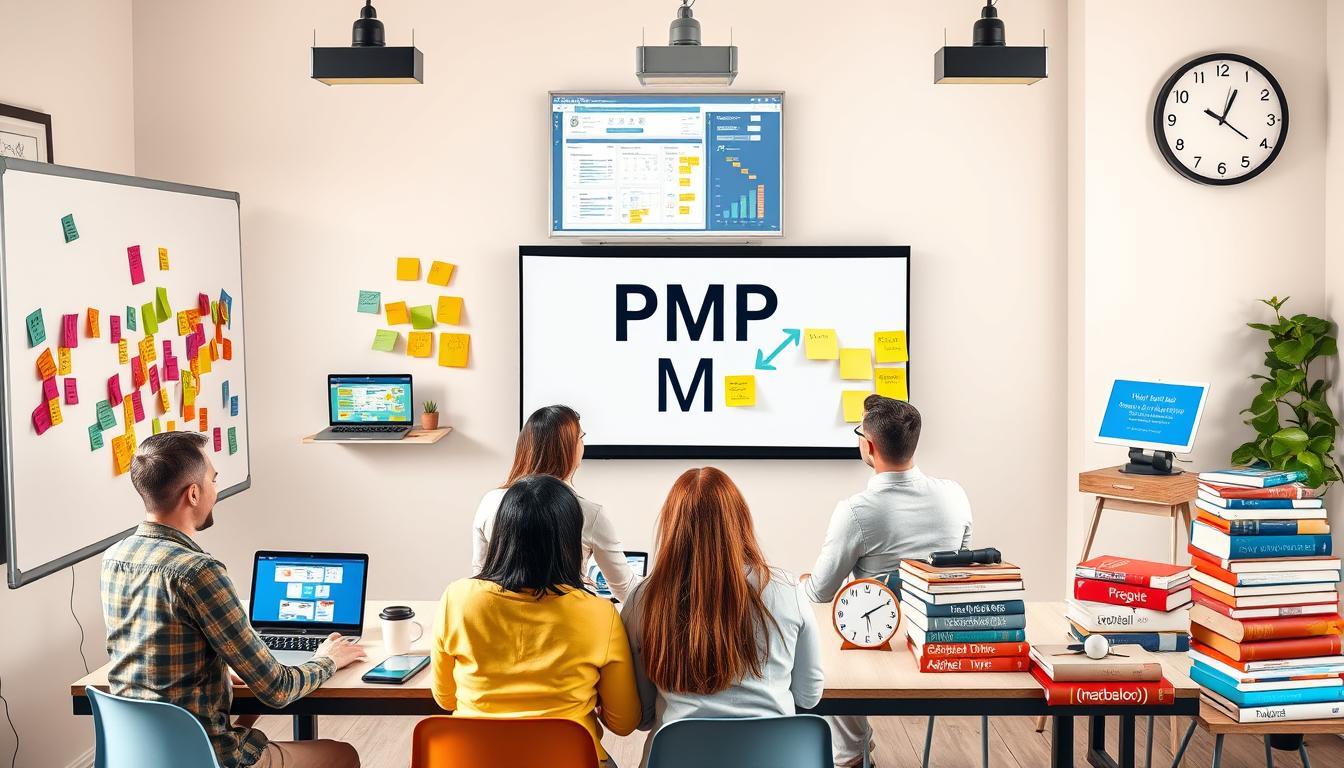If you are preparing for the Project Management Professional (PMP) exam, it’s essential to understand the importance of critical thinking skills. Critical thinking skills are crucial for success in many areas of business and daily life, but they are especially indispensable when it comes to project management. With the right critical thinking skills, you can better analyze the risks and opportunities associated with project management and make decisions that keep the project on track. In this article, we will explore how to practice critical thinking skills for PMP exam preparation and perform better on the exam.
Understanding the importance of critical thinking skills for PMP exam
The PMP exam is rigorous and challenging, and to succeed, you need to be able to make informed decisions quickly and efficiently. Critical thinking skills are necessary to analyze complex data, assess risks, and make informed project decisions. When you have solid critical thinking skills, you can better understand the project challenges and identify possible solutions. Furthermore, critical thinking helps you to make decisions based on fact and data, not just intuition or personal opinions.
Moreover, critical thinking skills are essential for effective communication with stakeholders. As a project manager, you need to be able to clearly articulate project goals, risks, and progress to various stakeholders, including team members, clients, and executives. Critical thinking skills enable you to present information in a logical and persuasive manner, and to anticipate and address potential objections or concerns. By using critical thinking skills to communicate effectively, you can build trust and credibility with stakeholders, and ensure that everyone is aligned and working towards the same goals.
Different types of critical thinking skills required for PMP exam
There are several types of critical thinking skills that you should master while preparing for the PMP exam. These include analytical thinking, logical reasoning, problem-solving, and decision-making. Each of these skills is essential when it comes to successful project management. Analytical thinking involves breaking down complex problems and identifying their constituent elements. Logical reasoning involves making correct deductions and inferences based on the available information. Similarly, problem-solving involves identifying problems and then developing and implementing possible solutions. Finally, decision-making involves weighing up available options and selecting the most appropriate course of action.
It is important to note that these critical thinking skills are not mutually exclusive and often overlap with each other. For instance, problem-solving and decision-making often require analytical thinking and logical reasoning to arrive at the best possible solution. Therefore, it is crucial to develop a holistic approach to critical thinking that encompasses all these skills. Additionally, practicing these skills through mock exams and real-life scenarios can help you hone your abilities and prepare you for the PMP exam.
Developing analytical thinking skills for PMP exam
To develop good analytical thinking skills, you’ll need to master the ability to break down complex problems into their constituent parts. One strategy for improving your analytical thinking skills is to practice breaking down a problem into its component parts, analyzing each element separately, and then returning to the whole problem. Repeat this process until you become comfortable with breaking down complex problems. Another effective way to develop analytical thinking skills is to take a structured approach to problem-solving, using formal problem-solving methods like Six Sigma or Design Thinking. These approaches provide a systematic way to break down problems and identify possible solutions.
Additionally, it’s important to develop your critical thinking skills in order to enhance your analytical thinking abilities. Critical thinking involves evaluating information, identifying biases and assumptions, and considering multiple perspectives before making a decision. To improve your critical thinking skills, you can practice analyzing arguments, identifying fallacies, and questioning assumptions. By combining analytical and critical thinking skills, you’ll be better equipped to tackle complex problems and succeed on the PMP exam.
Enhancing logical reasoning skills for PMP exam preparation
Logical reasoning involves making conclusions based on the available information. This is particularly crucial when it comes to the PMP exam, where you’ll need to make a variety of assumptions based on project data. To improve your logical reasoning skills, you can practice using formal logic techniques such as syllogisms and truth tables. Additionally, you can practice making inferences based on the available information, and assess whether the conclusion you’ve reached is logical and valid.
Another way to enhance your logical reasoning skills for the PMP exam is to practice identifying and analyzing cause-and-effect relationships. This involves understanding how one action or event can lead to another, and being able to identify the root cause of a problem. By developing this skill, you’ll be better equipped to identify potential risks and develop effective risk management strategies for your projects. You can practice this skill by analyzing case studies and real-world examples, and identifying the cause-and-effect relationships that led to a particular outcome.
Strengthening problem-solving skills for PMP exam
Problem-solving is a crucial skill for PMP exam success as it enables you to identify and analyze problems within a project and develop and implement solutions. To improve your problem-solving skills, start by breaking down challenging problems into smaller parts, then analyze each part separately and develop possible solutions. Afterward, assess each solution, considering its potential benefits and drawbacks. As with analytical thinking, formal problem-solving methods like Six Sigma or Design Thinking can be helpful in building your problem-solving skills.
Another effective way to strengthen your problem-solving skills for the PMP exam is to practice solving real-world problems. Look for opportunities to work on projects or initiatives that require problem-solving skills, and actively seek out feedback from colleagues or mentors to improve your approach. Additionally, consider joining a study group or online forum where you can collaborate with other PMP candidates to solve practice problems and share insights. By consistently practicing and seeking feedback, you can develop a strong problem-solving mindset that will serve you well on the PMP exam and in your career as a project manager.
Improving decision-making skills for PMP exam preparation
One of the most critical skills for success in PMP exam is decision-making. Decision-making involves weighing up the different options and selecting the one that will best suit the project. To improve your decision-making skills, start by considering all the possible options and their advantages and disadvantages. It’s also essential to ensure you’ve considered all the available data and information before making your decision. Additionally, you can practice making decisions based on incomplete or ambiguous information. This will require you to assess the available data and make a decision based on what you know, even if there is no clear solution.
Another way to improve your decision-making skills is to seek feedback from others. This can be done by discussing your decision-making process with colleagues or mentors and asking for their input. They may be able to provide a different perspective or highlight factors that you may have overlooked. It’s important to be open to constructive criticism and use it to improve your decision-making skills.
Finally, it’s essential to reflect on your decision-making process and outcomes. Take the time to evaluate the decisions you’ve made and their impact on the project. This will help you identify areas for improvement and adjust your decision-making approach accordingly. By continuously refining your decision-making skills, you’ll be better equipped to handle the challenges that come with the PMP exam and beyond.
Tips and strategies to improve critical thinking skills for PMP exam
There are several tips and strategies you can use to improve your critical thinking skills while preparing for the PMP exam. Firstly, you can practice active listening and reading, which will help you to better understand and retain information. Secondly, you can seek out and learn from others’ experiences. This can be through reading case studies or learning from colleagues who have already passed the PMP exam. Lastly, you can practice your skills by working on sample exams and case studies. These allow you to practice your critical thinking skills in a realistic setting and receive feedback on your performance.
Another effective way to improve your critical thinking skills for the PMP exam is to engage in group discussions and debates. This allows you to hear different perspectives and challenge your own assumptions. It also helps you to develop your communication skills, which are essential for effective project management. Additionally, you can try to identify and analyze real-world problems and come up with creative solutions. This will help you to think outside the box and develop innovative approaches to project management challenges. By incorporating these strategies into your PMP exam preparation, you can enhance your critical thinking skills and increase your chances of success.
Best practices to practice critical thinking skills for PMP exam preparation
If you want to develop strong critical thinking skills, it’s essential to start by understanding the various critical thinking skills required for PMP exam success. Afterward, you can focus on developing each of these skills systematically using formal methods like Six Sigma or Design Thinking. Additionally, you can practice your skills by working on real-life case studies, seeking out feedback to improve your performance.
Another effective way to practice critical thinking skills for PMP exam preparation is to engage in group discussions and brainstorming sessions. This allows you to bounce ideas off of others and receive different perspectives, which can help you develop a more well-rounded approach to problem-solving. It’s also important to actively listen to others and consider their viewpoints, even if they differ from your own.
Finally, it’s crucial to stay up-to-date with industry trends and developments. This can be achieved by attending conferences, reading industry publications, and networking with other professionals in the field. By staying informed, you can apply critical thinking skills to real-world scenarios and adapt to changes in the industry, ultimately improving your chances of success on the PMP exam.
How to apply critical thinking skills in real-life scenarios during the PMP exam
Applying critical thinking skills during the PMP exam is essential if you want to perform well. To do this, start by carefully reading and analyzing the provided information to gain a thorough understanding of the problem. Afterward, break the problem down into its component parts and analyze each part separately before returning to the whole. Consider all the possible options and their advantages and disadvantages before selecting the solution that best meets the project’s goals.
Common mistakes to avoid while practicing critical thinking skills for PMP exam preparation
While practicing your critical thinking skills, it’s crucial to be mindful of common mistakes. The most common mistake is to make assumptions without seeking out supporting evidence. Additionally, it’s essential to ensure that you consider all the available data before making a decision. Finally, avoid making decisions based on intuition or personal opinions alone.
The role of critical thinking in passing the PMP exam
The role of critical thinking skills in passing the PMP exam cannot be overstated. Having solid critical thinking abilities can help you to better analyze complex data, assess risks, and make informed project decisions. Additionally, critical thinking enables you to make decisions based on fact and data, not just intuition or personal opinions. Utilizing critical thinking skills during the exam can help you to identify the most appropriate course of action and, ultimately, pass the PMP exam successfully.
How to measure and assess your critical thinking abilities before taking the PMP exam
Before taking the PMP exam, it’s crucial to assess your critical thinking abilities to identify any areas that may require improvement. One effective way to do this is to take a critical thinking skills assessment test, which will help you identify your strengths and weaknesses. Additionally, you may want to consider working with a PMP exam coach or tutor, who can help you to identify areas for improvement and work with you to develop a plan for building your critical thinking skills.
The impact of effective critical thinking on project management success
Effective critical thinking is a key component of project management success. Building your critical thinking skills can help you to better analyze project data, assess risks, and make informed decisions. Additionally, critical thinking skills can help you to identify possible solutions to complex problems and determine the best course of action to ensure a successful project outcome. Overall, developing effective critical thinking skills is an essential ingredient in achieving success in project management.




